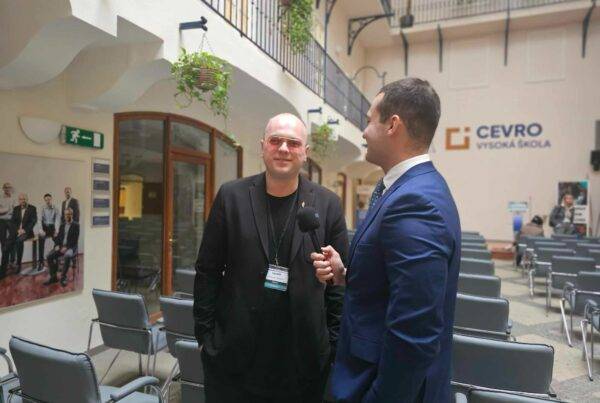I first went to Georgia for a Liberty Camp in the summer of 2007 that was jointly organised by ISIL and the New Economic School of Georgia. At the time the country hadn’t seemed particularly free-market, but in the years since a few people have said to me that it has seen extraordinary levels of privatisation making Georgia one of the best current examples of the free market. Luckily for us, Gia Jiandieri, the Vice-President of NES, together with Neil Emerick of the Free Market Foundation, has recently come out with an article to enlighten us on the brilliant changes that have taken place in the country. [emphasis added]
[…] By 2003, the public had lost complete faith in public institutions, then president Eduard Shevardnadze resigned and a reform government was elected in what came to be known as the “Rose Revolution”. The new government saw its country at rock bottom and decided radical reform of the business environment was required.
The priorities for economic recovery and reform included liberalising the tax system, deregulation, making the process of starting a business easier, high-speed privatisation and public-sector reforms that included eliminating corruption, lowering the number of state agencies and downsizing the rest.
In the area of tax reform, personal income tax was decreased from 20% to a top, flat rate of 12%. Social taxes went from 31% to 20% and were then abolished. Value-added tax was lowered from 20% to 18%. Corporate tax was reduced to 15%, while dividend tax came down to 5%. The total number of taxes was reduced from 22 to six. In 2011, Georgia adopted the Economic Liberty Act, which prohibits government spending of more than 30% of GDP, a budget deficit of more than 3% and public debt of more than 60% of GDP.
Impressive reforms were made at customs. All procedures were simplified to allow importers to cross the border in a few hours, while most tariffs were eliminated. Top rates were brought down from 32% to 12%, with the average tariff rate at 1.3%.
While at university I remember a Georgian classmate being completely baffled by the high rates and the complexity of the tax systems in the US and UK. He wasn’t a libertarian in general, but being familiar with the flat tax system in his home country he couldn’t understand why people would put up with anything worse. If only more could experience the simplicity of a flat tax
In 2005, the government adopted enabling legislation for business licensing, competition, labour, electricity production and supply. More than 800 licences and permits were abolished. New rules of competition prohibited any governmental intervention that would result in artificial monopolies. Legislation in the energy sector allowed for vertical integration, unregulated pricing and unrestricted export opportunities. In health, the government eliminated most licences, allowed for a total opening of the market to medicines produced and licensed in Organisation for Economic Co-operation and Development nations and removed restrictions on vertical integration in the industry.
Production of medicines was also deregulated, supporting the sector’s development and competitiveness. The result of the reform saw the total number of health-sector companies increase 10 times, while the number of chain pharmacies increased from three to six. Last year, the Curatio International Foundation survey found standard treatment prices were 50%-60% lower than in 2009.
Drastic steps were taken to root out corruption in the public sector. The Georgian government fired thousands of corrupt officials and, in an amazing singular political event, fired its entire police force of 40,000, completely abolishing the traffic department. About 15,000 officers were gradually hired back after investigation and interviews. Zero tolerance towards crime and corruption has helped Georgia become one of the safest countries in the world.
In 2004, economy minister Kakha Bendukidze announced full-scale privatisation, saying: “We are going to sell everything except our honesty.” Georgia sold the ports to private companies, which were allowed to on-sell. The entire telecommunications industry was privatised, along with the energy and distribution sector. Most hospitals were placed in private hands, along with public buildings, which the government leased back on the outskirts of cities rather than in the centre. Land privatisation included law amendments eliminating discrimination in certain types of land ownership. Public servants were cut from 400,000 to 280,000.
The results of the “Rose Revolution” are impressive. In terms of economic growth, real GDP doubled between 2004 and last year (8% year on year), while average salaries quadrupled. The number of registered companies went from 50,000 in 2003 to 400,000 last year. Bank deposits increased eightfold, renewing trust in the financial sector.
Georgia is now ranked eighth on the World Bank’s Doing Business report and lifted its Transparency International ranking (on corruption) from 130th (2005) to 51st (2012). On the Fraser Institute’s Economic Freedom of the World index it rose from 73rd (2004) to 25th (2011). Despite the lower tax rates, total tax collected went up tenfold.
Georgia’s incredible transformation has not been without difficulties. Political pressure was put on the government by a public little exposed to business competition. Protests from farmers and other lobby groups led to growing subsidies in certain sectors. The judiciary’s independence is questioned and important reform remains to be done.
The extent of the policies instituted by the executive function of government created constitutional concerns. Limitations on the function of president were enacted last year, with most powers transferred to parliament and the presidential role becoming more ceremonial. The centralisation of government power has been criticised, as it led to a weakening of local government.
So many government actions in the right direction, and all in one place! Go to NES Georgia’s site to learn more about their activities in the country, and perhaps the next time someone asks you if there are any real-world examples of free-market policies in action, you can respond “yes!” without hesitation.
[alert style=”green”] This article was originally published by Business Day Live, read the full article here. [/alert]





Wonderful exemplification of the economical-political changes in Georgia.